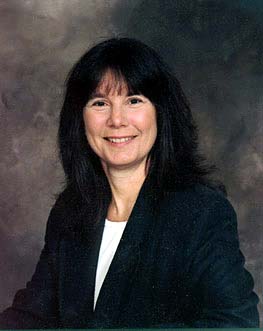Louisiana Biologist to Receive WHOI’s Ketchum Award January 16
January 10, 2002
Farming practices in the Mississippi River drainage area are affecting coastal ocean waters off Louisiana and the coastal water quality in the Gulf of Mexico. Dr. Nancy Rabalais of the Louisiana Universities Marine Consortium, a leading researcher in this field, will share some of her findings when she receives the 12th Bostwick H. Ketchum Award January 16 at the Woods Hole Oceanographic Institution (WHOI).
Dr. Rabalais will receive the award, one of the Institution’s highest honors, and present the award lecture, entitled “Mississippi River and Coastal Water Quality: Linking the Gulf of Mexico with the Continent,” at 2:30 p.m. in Clark Laboratory, Room 507, on the Institution’s Quissett Campus. A reception will follow. The program is open to the public.
The Ketchum Award is presented by the Institution’s Coastal Ocean Institute and Rinehart Coastal Research Center to a scientist who demonstrates innovative coastal research, leadership in the scientific community, and attention to the effects of marine pollution on the coastal environment and society. Other selection criteria include a history of collaboration with scientists in other disciplines, serving as an inspiration to students and younger scientists, effectively translating research results into the policy arena, and through research addressing environmental effects of society’s activities in the coastal zone.
Dr. Rabalais, who is being cited for her leadership in the science and implications of coastal anoxia (a lack of oxygen in coastal waters), is interested in a variety of coastal issues. She was named a 1999 NOAA Environmental Hero for her work on the causes and consequences of Gulf of Mexico hypoxia.
Nancy Rabalais has been affiliated with the Louisiana Universities Marine Consortium (LUMCON) since 1983. She earned a Ph.D degree in zoology from the University of Texas at Austin, and B.S. and MS. degrees in biology from Texas A&M University, Kingsville, TX. Prior to 1983 Dr. Rabalais was a Research Associate then a graduate student at the University of Texas Marine Science Institute in Port Aransas. She teaches marine science courses at LUMCON and in the Department of Oceanography & Coastal Sciences at Louisiana State University.
Dr. Rabalais’s research interests include the dynamics of hypoxic environments, interactions of large rivers with the coastal ocean, estuarine and coastal eutrophication, benthic ecology, and environmental effects of habitat alterations and contaminants. She shares the Blasker Award for Environmental Science and Engineering with Gene Turner for similar endeavors.
The B. H. Ketchum Award was established by the Woods Hole Oceanographic Institution in 1983 in tribute to the late Bostwick H. “Buck” Ketchum, an internationally respected oceanographer. Ketchum was associated with WHOI for 40 years and was a strong force in developing biological oceanography. Buck Ketchum’s pioneering research provided the basis of our understanding of productivity of the oceans, and his early work is still cited by scientists in the field. In later years he turned his attention to the effects of human activities on the coastal zone and the need for research into problems in that area. At the time of his death he was one of four co-editors of a six-volume series on Wastes in the Oceans published by John Wiley & Sons. He retired in 1977 as Associate Director of the Institution and died in 1982. An endowment has been raised, much of it from friends and colleagues, to support an annual lecture in Woods Hole by an internationally recognized scientist or a longer visit by a younger researcher.

